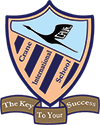Key Stage 2 is typically for learners aged 7-11years. On the pursuit of the Cambridge Assessment International Education Curriculum, it sets clear learning objectives for the first three years of Key Stage 2 education (Year 3 to 6), working in either set or mixed ability groups. It gives a wide range of different learning process, developing the knowledge, skills and practices that will lead to Academic Success, Life-long learning, Contribution to own society and Contribution to global society.
Reading
This course is central to everything we do. Each day our children from year one upwards are taught the skills to help them learn to read and write. When they are younger they use pictures and words to assist them but for the older children, we encourage them to communicate using the language they have acquired from reading.
Spelling and Writing
This course is wonderful when children first learn to spell and it starts right back with the first word, they scribbled that they can call writing. The next stage is to learn which letters make the sounds of the words they want to write. Children learn to recognise relations between letters and sounds and writing transforms ideas and feelings into print. Children learn writing not only in their English classes but also in other subjects such as Science and Social Studies.
Mathematics
Mathematics is a vital course and we guarantee children can count. And as they get older, we introduce age appropriate concepts and each lesson has a clear objective. Teaching and learning is interactive and enjoyable as we want children to grow up feeling excited by Mathematics rather than apprehensive.
Science
Children are naturally curious about the world that surrounds them and Science channels this interest and builds upon it. In addition to learning facts, children have to research to find out information on their own so they begin to think like young scientists.
Social Studies
Children identify places on a map using absolute and relative locations, directions, borders, longitude and latitude lines and the North and South Poles. They will learn basic physical components of the earth including land forms, water, climate, and weather. They will be able to differentiate between basic ecosystems such as rainforests or deserts and they will recognise global environmental issues such as climate change and pollution. Finally, they will understand how other cultures meet their basic needs and how cultures change to understand the role of rules and laws in our daily lives.
Global Perspectives
One of the key points of Cambridge Global Perspectives is metacognition, which refers to students’ awareness of how they have deepened and strengthened their ability to learn. Metacognition is critical in all subjects and used across learning areas; it is about how students reflect on and evaluate their own learning, how they have engaged with others, how their thinking has evolved. This offers students a 360º view of themselves as a learner as well as other people’s points of view and feedback from teachers.
Languages
Myanmar and Chinese are taught because we believe that a child has the ability to learn as many as four languages at a young age. At CISM, we realise just how important it is for children to know their own language.
Information and Communication Technology
In the 21st century we will need to be able to use computers and other technologies skilfully. We have internet accessible computer rooms and Key Stage 1 students are taught a wide range of skills including word processing, informative and data handling and graphics. These skills are taught in individual, specific IT lessons.
Handwriting
When children are young, their handwriting may not be neat or the right size. As they progress, they are taught to form letters correctly because starting and finishing letters in the right place is important when they learn cursive writing.
Assessment
Key Stage 2 is typically for learners aged 7-11years. On the pursuit of the Cambridge Assessment International Education Curriculum, it sets clear learning objectives for the first three years of Key Stage 2 education (Year 3 to 6), working in either set or mixed ability groups. It gives a wide range of different learning process, developing the knowledge, skills and practices that will lead to Academic Success, Life-long learning, Contribution to own society and Contribution to global society.
Key Stage 2 builds on the foundations developed in Key Stage 1, and offers learners a 3 year preparatory course to take part in the internationally recognized Cambridge Primary Checkpoint Exams at the end of Year 6.

